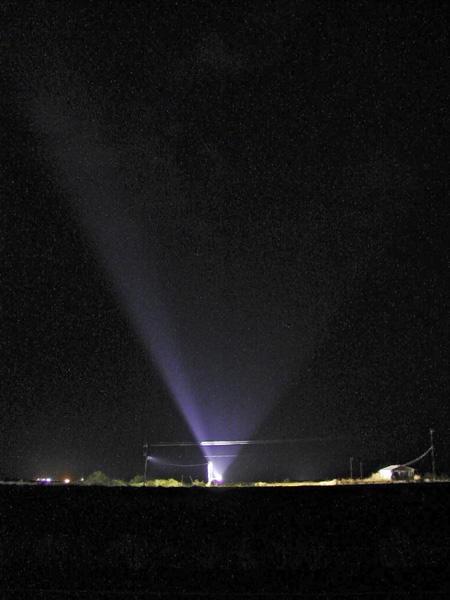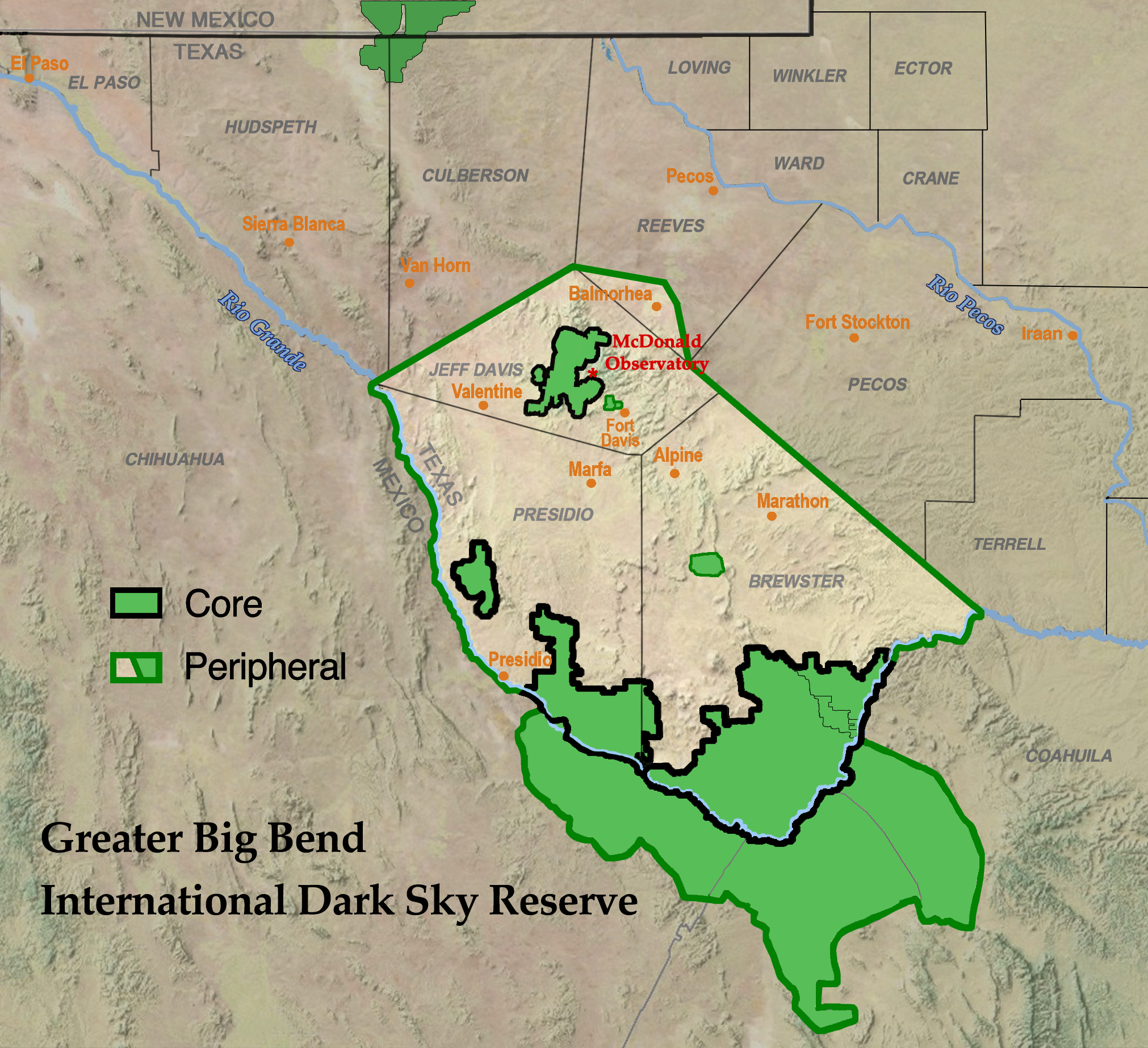Dark Skies Initiative
McDonald Observatory is collaborating with local communities and businesses, including the oil and gas industry, to promote better nighttime lighting, i.e., cost efficiency, improved visibility & safety, and dark skies for the Observatory.
Click here for a list of many more useful Dark Sky resources and links.
About Light Pollution:
Why Are We Losing the Night Sky? "It's Okay To Be Smart." PBS/YouTube video featuring Joe Hanson (11:29).
What is light pollution?
Light pollution is any adverse effect of artificial light at night, including sky glow, impaired visibility from glare, light trespass, energy waste, and more.
Does it really matter?
YES! Light pollution wastes energy and money, disrupts global wildlife and ecological balance, has been linked to negative consequences in human health, and negatively affects our ability to do astronomy.
Effects of Light Pollution:
• COSTS: Billions of dollars per year in electricity costs are wasted shining light upward at night. These numbers do not include the costs of producing the energy to generate electricity.
• ENERGY CONSUMPTION: Most of the energy required to power all of the wasted light comes from burning fossil fuels, contributing to other types of pollution.
• HEALTH: New studies point to dramatic health consequences from the disruption of the natural human day/night cycle. Unnatural light at night affects hormone production and suppresses the immune system.
• SAFETY: Vision is impaired by "glare" from overly bright light sources, reducing sensitivity to fine details and color perception, especially in elderly people. Brighter lights cause shadows to appear darker.
• THE ENVIRONMENT: Artificial light at night has been shown to disrupt the mating, migration, and hunting behaviors of many different species, and therefore the ecological system as a whole.
• LOSS OF NIGHTTIME SKY: The view of stars and dark night skies is rapidly being lost. Generations are growing up having never seen the Milky Way. Sky glow resulting from artificial lighting dramatically hinders the science of astronomy.

A billboard is an example of wasted light.

Light fixtures: good, bad and ugly
What can I do?
A WIN-WIN SOLUTION to light pollution! By changing outdoor lighting practices, you can prevent light pollution while putting more light where you want it using less electricity. Read on to find out how to make a positive difference.
The Solutions:
EFFECTIVE LIGHTING: We can reclaim vast amounts of energy currently wasted inadvertently into the night sky by poorly designed outdoor lighting. We can do this by using light fixtures that are shielded to reflect light down where it is needed, as well as using the smallest number of lights and lowest wattage bulbs necessary to effectively light an area.
START WITH YOUR OWN HOME AND BUSINESS: Lead by example in adopting good lighting practices. Put your own house in order first. If everyone would simply keep their own light on their own property, the problems of light pollution would largely disappear.
SPREAD THE WORD: The solution to light pollution is 90% education and awareness, and 10% hardware. Identify examples of good lighting in your community and show them to your friends and neighbors. Once people see it, they can't un-see it. Once they understand the implications for cost savings and improved visibility, they are far more likely to adopt good lighting practices on their own.
The Greater Big Bend International Dark Sky Reserve
McDonald Observatory is applying to the International Dark-Sky Association (IDA) to establish an International Dark Sky Reserve (DSR) in the Big Bend region of far West Texas and Northern Mexico. If completed, this will be the larger than all other existing Dark Sky Reserves in the world combined.
Click the map below to see the white paper for details.
A Spanish translation is also available.

Contact: bwren@utexas.edu, stephenhummel@utexas.edu
-
- English
- Afrikaans
- Albanian
- Arabic
- Armenian
- Azerbaijani
- Basque
- Belarusian
- Bengali
- Bosnian
- Bulgarian
- Catalan
- Cebuano
- Chinese (Simplified)
- Chinese (Traditional)
- Croatian
- Czech
- Danish
- Dutch
- Esperanto
- Estonian
- Filipino
- Finnish
- French
- Galician
- Georgian
- German
- Greek
- Gujarati
- Haitian Creole
- Hausa
- Hebrew
- Hindi
- Hmong
- Hungarian
- Icelandic
- Igbo
- Indonesian
- Irish
- Italian
- Japanese
- Javanese
- Kannada
- Khmer
- Korean
- Lao
- Latin
- Latvian
- Lithuanian
- Macedonian
- Malay
- Maltese
- Maori
- Marathi
- Mongolian
- Nepali
- Norwegian
- Persian
- Polish
- Portuguese
- Punjabi
- Romanian
- Russian
- Serbian
- Slovak
- Slovenian
- Somali
- Spanish
- Swahili
- Swedish
- Tamil
- Telugu
- Thai
- Turkish
- Ukrainian
- Urdu
- Vietnamese
- Welsh
- Yiddish
- Yoruba
- Zulu
